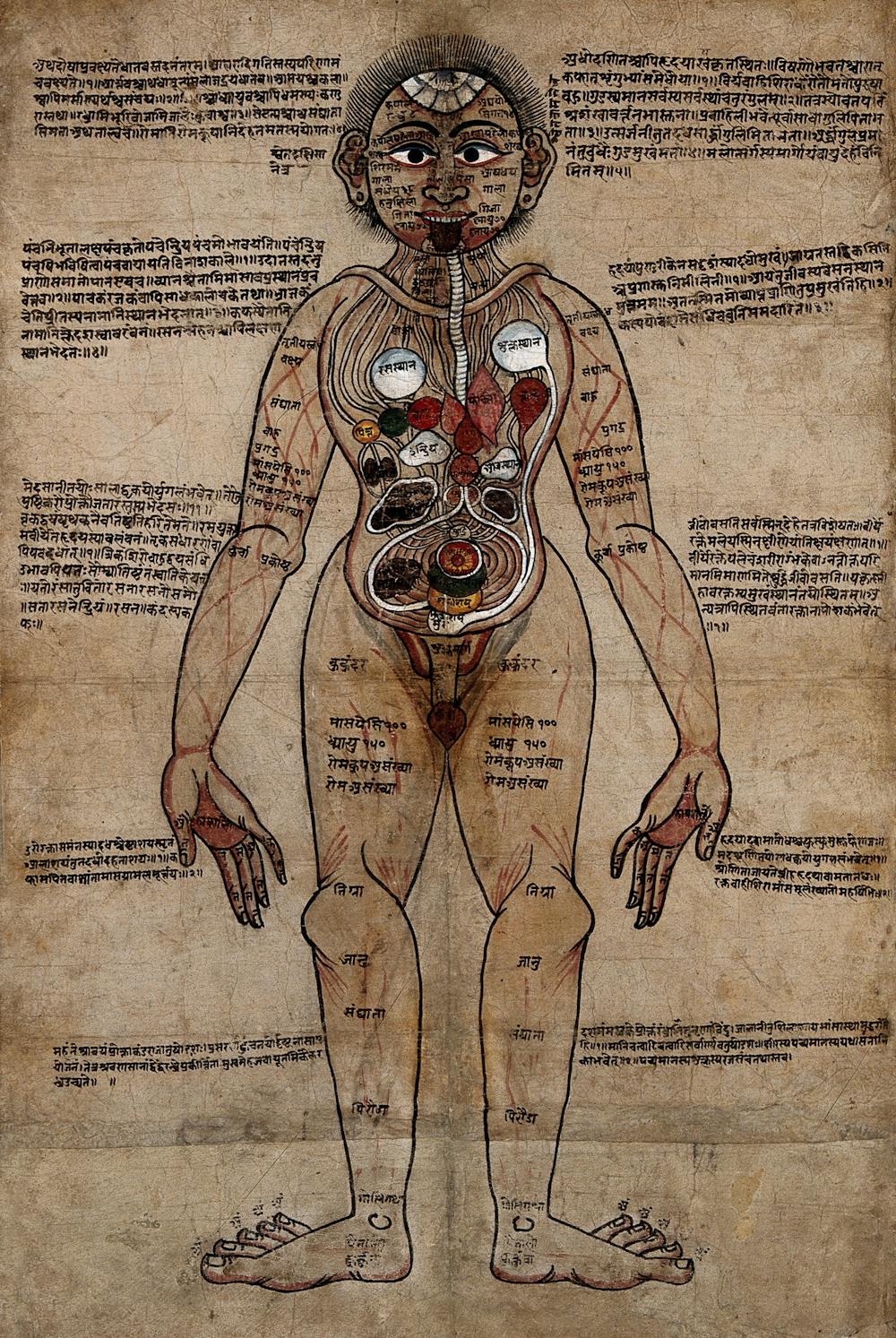The Role of Ayurveda in Stress Management and Mental Clarity
The Role of Ayurveda in Stress Management and Mental Clarity
Blog Article
Why You Have to Get It: The Transformative Power of Ayurveda Explained
Ayurveda, a classic system of medication, provides a special perspective on health and wellness that transcends plain signs and symptom administration. By stressing the detailed balance between spirit, body, and mind, it provides a framework for recognizing specific constitution with the principle of doshas. This customized technique not just addresses physical disorders however likewise cultivates spiritual and psychological wellness. As we explore the core concepts and methods of Ayurveda, it becomes evident that its transformative potential extends much beyond conventional wellness paradigms-- increasing the inquiry of how it may reshape your understanding of health.
Comprehending Ayurveda's Core Concepts
Ayurveda, commonly referred to as the "scientific research of life," is rooted in an all natural technique to health and wellness that intertwines the physical, mental, and spiritual dimensions of health. Central to Ayurveda are the principles of the 5 aspects, referred to as "Pancha Mahabhuta," which comprise planet, water, fire, air, and ether. These elements combine to form 3 primary energies, or "doshas": Vata, Pitta, and Kapha, each representing various mixes of physical and emotional features.


Comprehending these doshas is essential for determining an individual's special constitution, or "Prakriti," which guides individualized wellness strategies. Ayurveda emphasizes balance, promoting for a lifestyle that integrates these powers with diet, organic remedies, and day-to-day regimens. Ayurvedic principles assert that health and wellness is not simply the absence of condition but a state of ideal vigor.
The practice of mindfulness and self-awareness is basic, encouraging individuals to establish a deeper link with their bodies and the atmosphere. By acknowledging the interplay of emotional and physical variables, Ayurveda promotes a detailed understanding of health and wellness that empowers people to take fee of their wellness, promoting a course in the direction of alternative makeover.
Benefits of Ayurvedic Practices
Routinely including Ayurvedic practices right into life can yield a multitude of benefits that enhance general well-being. These time-honored practices concentrate on attaining harmony within the spirit, body, and mind, resulting in improved physical health and wellness, mental quality, and emotional equilibrium.
One significant benefit of Ayurvedic practices is their ability to advertise gastrointestinal health and wellness. Personalized dietary recommendations, based on an individual's dosha, can enhance nutrient absorption and minimize stomach issues. Furthermore, Ayurvedic herbs and flavors, such as turmeric and ginger, have anti-inflammatory homes that can assist in the avoidance and monitoring of chronic illness.
Additionally, Ayurvedic techniques stress the relevance of daily routines, called dinacharya, which foster stability and predictability in one's life. This uniformity can lower tension levels and improve productivity. Mindfulness strategies, consisting of meditation and yoga, not just cultivate mental durability yet additionally boost psychological policy.
Last but not least, by fostering a connection to nature and stressing holistic living, Ayurveda encourages people to participate in self-care and grow a feeling of community. In general, the combination of Ayurvedic practices can lead to an extra well balanced, lively, and meeting life.
Key Components of Ayurvedic Recovery
What are the fundamental aspects that add to the efficiency of Ayurvedic healing? At the core of Ayurveda lie three key parts: the idea of doshas, the focus on balance, and the alternative technique to wellness. The doshas-- Vata, Pitta, and Kapha-- stand for the unique mixes of the five elements that regulate specific constitutions. Understanding one's dosha is necessary for customizing therapies that recover balance and advertise health.
Equilibrium is a persisting style in Ayurvedic healing, reflecting the idea that wellness arises from consistency within the body and in between the individual and their atmosphere. Disturbance of this equilibrium can cause illness, requiring targeted interventions to bring back stability.
In addition, Ayurveda accepts an all natural strategy, taking into consideration physical, mental, and spiritual facets of wellness. This detailed viewpoint acknowledges that psychological wellness and way of living options substantially affect physical health.
Integrating Ayurveda Into Daily Life
Integrating the principles of Ayurveda right into day-to-day live can considerably boost total health and advertise a much deeper connection to one's body and setting. By adopting Ayurvedic techniques, individuals can cultivate equilibrium and harmony within themselves, adjusting to their one-of-a-kind constitution or dosha.

Incorporating herbal treatments and natural components right into individual care routines can further reinforce Ayurvedic principles. As an example, using oils Read Full Report for self-massage, known as abhyanga, promotes flow and relaxation. Furthermore, including meditation or yoga can enhance mental quality and emotional security, promoting an alternative technique to wellness.
Finally, understanding environmental aspects, such as climate and seasonal changes, allows people to change their way of livings accordingly, guaranteeing that their practices stay efficient and encouraging - Ayurveda. By weaving these concepts right into day-to-day life, one can experience profound advantages, bring about an extra well balanced and meeting presence
Individual Changes Through Ayurveda
The implementation of Ayurvedic principles right into everyday routines typically brings about substantial individual transformations, as individuals start to experience profound changes in both physical their explanation and mental health and wellness. By embracing methods such as dietary adjustments, organic supplements, and conscious meditation, many report boosted energy levels, boosted digestion, and improved psychological durability.
People commonly discover that the alternative technique of Ayurveda addresses not simply signs, but underlying imbalances within the body and mind. Taking on a personalized nutritional routine based on one's dosha can lead to weight management, reduced swelling, and far better overall vigor. Additionally, the unification of everyday self-care routines, such as oil drawing or Abhyanga (self-massage), cultivates a much deeper connection to one's body, promoting self-awareness and supporting mental health.
As practitioners dive deeper right into Ayurvedic philosophy, they regularly uncover a renewed sense of objective and clarity in their lives. This transformative journey encourages individuals to grow mindfulness, causing much healthier relationships and a higher admiration for today moment. Eventually, Ayurveda encourages people to take charge of their health and wellness, facilitating a purposeful and long lasting makeover in their lives.
Conclusion
By executing and recognizing specific doshas customized methods, Ayurveda fosters optimum wellness and emotional resilience. The concepts of Ayurveda use beneficial understandings for growing a satisfying and dynamic life.
As we discover the core principles and techniques of Ayurveda, it ends up being noticeable that its transformative prospective prolongs far beyond traditional health paradigms-- raising the inquiry of how it see this page could reshape your understanding of health.
Ayurveda, commonly described as the "scientific research of life," is rooted in an alternative strategy to health and wellness that links the physical, mental, and spiritual measurements of well-being. At the core of Ayurveda exist three main components: the concept of doshas, the focus on balance, and the holistic technique to wellness. Inevitably, Ayurveda encourages people to take cost of their health and wellness, helping with a meaningful and long-term improvement in their lives.
By executing and identifying specific doshas customized techniques, Ayurveda fosters ideal health and emotional durability.
Report this page